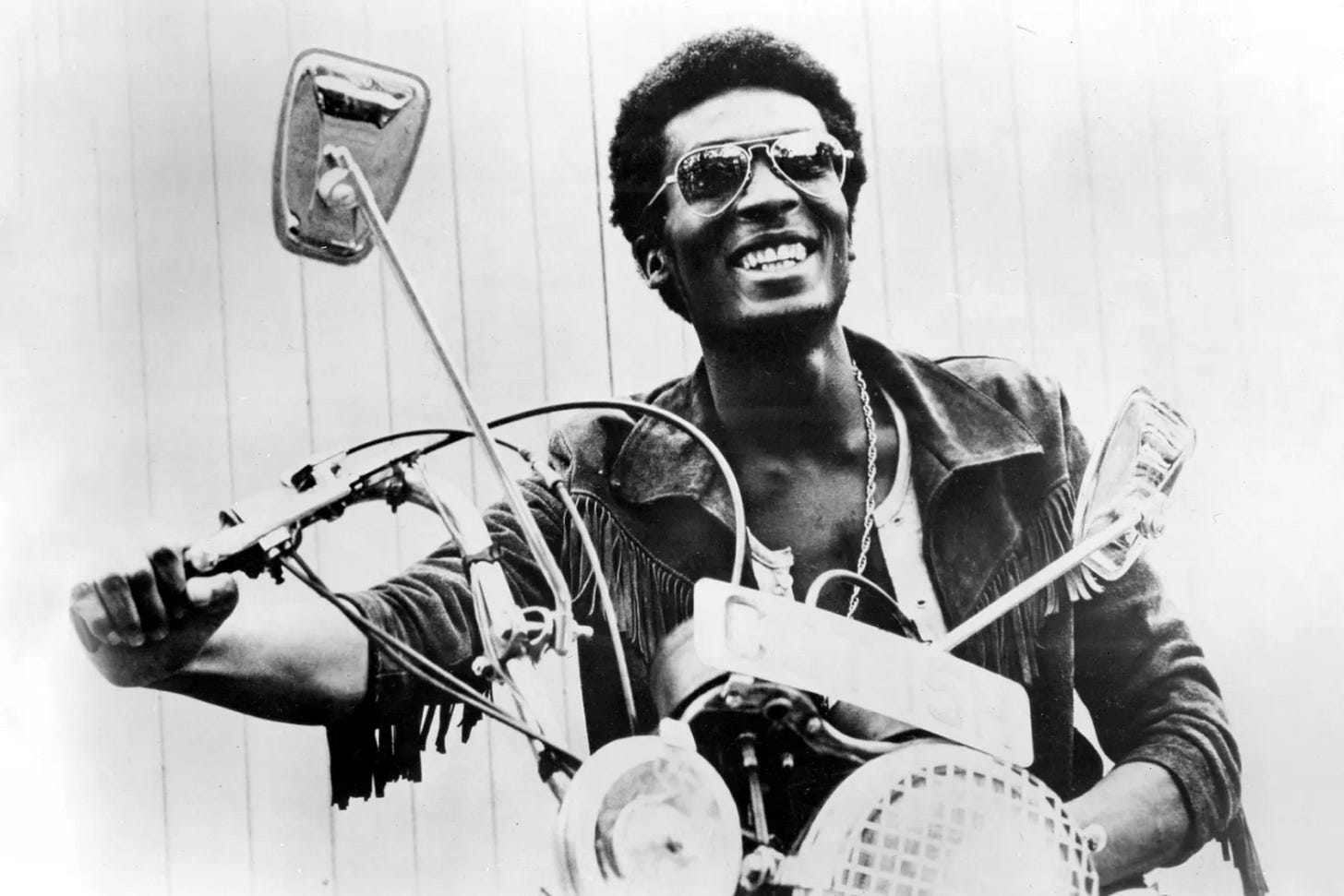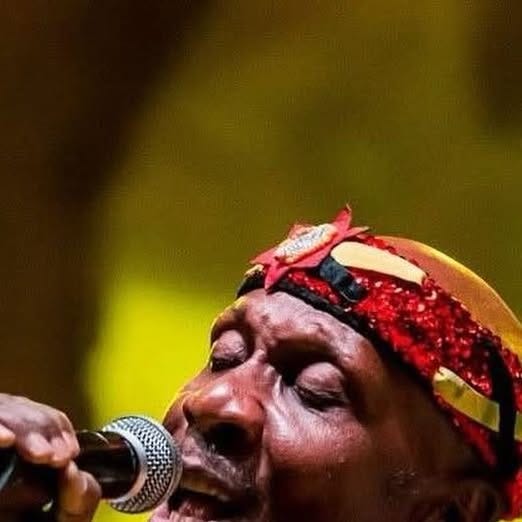Our Tribute to Jimmy Cliff (1944-2025)
His voice moved through decades without ever losing the conviction he carried as a young singer from Somerton. This tribute gathers everything that shaped one of Jamaica’s most fearless artists.
Jimmy Cliff’s family spoke first. Today, they posted on his Instagram page that the eighty-one-year-old singer had “crossed over due to a seizure followed by pneumonia,” a passage his wife Latifa Chambers said came “with profound sadness.” That really broke us. She thanked his friends and collaborators and told his many admirers that their support had always been his strength. His children, Lilty and Aken, wrote that their father had always been grateful for the global community he had found through song.
The man behind the stage name was born James Chambers on July 30, 1944, in the hillside hamlet of Somerton in St. James’ parish, Jamaica. His father tailored clothes and eked out a living as a farmer, and his mother left when he was an infant, so he and his older brother were raised mainly by their father and a supportive grandmother. Although he was clever at school, his endless singing annoyed teachers. His father’s Pentecostal faith meant that Sundays were filled with hymns; the boy enjoyed the singing but not the sermons and often climbed a tree outside to practice alone.
Somerton had neither electricity nor running water, but music seeped in from unexpected places. Next door to the family home was a juke joint called the Money Rock Tavern, where a sound system blasted Latin music and American R&B. The strict Christian household frowned on worldly music, but young James would slip out to hear Fats Domino, Little Richard, Ray Charles, and Sam Cooke. He also heard local mento songs and drums, the raw rhythms that would eventually evolve into ska. At fourteen, he entered a 4-H talent competition and won first prize singing Fats Domino’s “Be My Guest” while imitating the instrumental parts with his voice. Around the same time, he began calling himself Jimmy Cliff because he had grown up among mountains and liked to climb cliffs to view all of Somerton.
His father eventually decided that the boy needed a trade, so they traveled to Kingston, Jamaica’s capital, where Jimmy enrolled at Kingston Technical College and worked days on a vegetable truck. The independence movement was surging, and local entrepreneurs were beginning to record homegrown performers. The teenager wandered the city’s roughest district, Back-o-Wall—a squatter camp near a dump—looking for a place to sing. He tried talent shows such as the Vere Johns Opportunity Hour. Early attempts drew boos, but a second appearance at Kingston’s Majestic Theatre with an original song won him first place. Initial recordings made for a sound-system operator paid only a shilling and remained unreleased, but he persevered.
One night, frustrated by rejection, Cliff walked past a combination ice-cream parlor and record shop called Beverley’s on Orange Street. Hoping to get attention, he wrote a song called “Dearest Beverley” and pushed his way inside to perform it. Two of the Chinese-Jamaican Kong brothers laughed him off, but a third—Leslie Kong—was transfixed by the teenager’s voice and decided to start making records. Kong recruited established singer Derrick Morgan to assist, and within days Cliff recorded “Hurricane Hattie,” “King of Kings,” and the ballad “Dearest Beverley.” The exuberant “Hurricane Hattie,” inspired by a recent tropical storm, and the coded Rastafarian nod “King of Kings” both topped Jamaica’s charts and launched Beverley’s Records.
Success at home brought opportunities abroad. In 1964, the Jamaican government sent Cliff and other musicians to the World’s Fair in New York. Island Records founder Chris Blackwell saw him perform and convinced him to move to England, believing that the singer could become a black rock star for the British market. Once in London, Cliff assembled a band of British musicians who backed him on soul and ska tunes, sharing stages with Jimi Hendrix and the Who. His 1967 Island debut album Hard Road to Travel melded soul and reggae, while his 1969 album Wonderful World, Beautiful People contained the anti-war song “Vietnam,” which Bob Dylan called one of the best protest songs ever written, and the hymnlike “Many Rivers to Cross,” written during a period of homesick struggle in London.
Cliff’s concise storytelling and melodic clarity yielded a string of songs that travelled the world. He scored hits with Cat Stevens’s “Wild World” and his own “You Can Get It If You Really Want” in 1970 and 1971, songs later covered by others, including the English ska group the Pioneers. Filmmaker Perry Henzell saw the singer’s photograph on one of those records and cast him as Ivanhoe Martin in The Harder They Come. Cliff portrayed a naive aspiring singer who turns to crime after being cheated by music executives, echoing the experiences of many rural migrants in Kingston. The 1972 film became Jamaica’s first feature and its soundtrack—which included the title song, the redemptive ballad “Many Rivers to Cross” and Toots and the Maytals’ “Pressure Drop”—introduced reggae’s rebel image to international audiences. The soundtrack later appeared on Rolling Stone’s list of the 500 greatest albums, and the Library of Congress preserved it for its cultural significance.
Despite the film’s impact, Cliff’s relationship with Island Records deteriorated. While director Henzell and Chris Blackwell promised him a large contract after the movie, the production dragged on, and the singer ran out of money. Feeling betrayed, he accepted a $50,000 offer from EMI and left Island. Blackwell admits he was bitter, but the split opened a door for Bob Marley; Blackwell shifted his promotional energies to the Wailers, and their rock-flavored Catch a Fire followed. Cliff never resented Marley’s success—he had in fact introduced the Wailers’ leader to Leslie Kong in 1962, setting up recording sessions for Marley’s early singles “One Cup of Coffee” and “Judge Not.” Instead, he continued on his own path, recording for Warner Brothers, MCA, and later Columbia.
The mid-1970s found him living in Africa and Brazil, exploring Islam and Rastafari and experimenting with funk, disco, and international collaborations. He acted in films such as Bongo Man and made a cameo in Club Paradise(1986), but music remained central. In 1985, he released Cliff Hanger on Columbia; the album, featuring members of Kool and the Gang, won the Grammy Award for Best Reggae Recording the following year. Bruce Springsteen began covering Cliff’s song “Trapped” in concert, turning the story of desperation into a stadium sing-along. The reggae pioneer’s international profile rose again in the early 1990s when he recorded a triumphant cover of Johnny Nash’s “I Can See Clearly Now” for the Disney film Cool Runnings; the track reached the top twenty on the Billboard Hot 100 and topped the French charts. He contributed to The Lion King companion album Rhythm of the Pride Lands and appeared in occasional film roles.
On stage, Cliff remained a commanding presence. He would tour with multigenerational bands, from African drummers to punk-ska revivalists, sometimes sharing bills with Paul Simon and members of the E Street Band. In 2010, the Rock & Roll Hall of Fame recognized him as reggae’s first global ambassador. “When we saw Jimmy Cliff, we saw ourselves,” Wyclef Jean said during the induction, explaining that children of the diaspora found aspiration and dignity in the singer’s example. Cliff accepted the honor with humility and performed “You Can Get It If You Really Want” for the crowd. Two years later, he released Rebirth, an album recorded with punk stalwarts led by Tim Armstrong that recaptured the joyous horns and organ swells of 1960s ska, earning him a second Grammy for Best Reggae Album.
Cliff slowed his pace only slightly in his seventies. He remained outspoken about global inequality and immigration; his final studio album, Refugees (2022), drew attention to humanitarian crises and the plight of people crossing borders. In interviews, he reflected on mortality and spirituality with the calm assurance of a man who had long since shed ego. He explained that Rastafari taught him to look beyond intellect to what he called “over-standing”—tuning in to the universe and recognizing one’s inner divinity. Although he generally avoided smoking and drinking, he admitted that he would occasionally share a spliff or a glass of wine with friends. Moderation, meditation, and an abiding belief in the soul’s continued existence allowed him to view life as an ongoing journey rather than a finite arc.
With his death, Jamaica loses one of its guiding lights, yet his songs remain living testaments. He came of age singing gospel hymns, sneaking into taverns to hear American R&B, and writing his own tunes when a wood-shop teacher casually told him that a song simply needed to be written. He hustled through Kingston’s slums, forced his way into a record shop, and convinced a real-estate agent to become a producer. He charmed British rock stars, wrote some of reggae’s most enduring melodies, and portrayed a rebel hero who became a symbol of the dispossessed. After the camera lights dimmed, he maintained an almost monk-like routine while raising a family and studying different faiths. Jimmy Cliff’s voice will still float from radios, sound systems, and street corners around the world. In the words of Wyclef Jean, countless young dreamers saw themselves in him, and now they will carry his spirit forward across many rivers yet to cross.
Works Cited
Katz, David. “Island Ambassador: Jimmy Cliff Is One of Reggae’s True Pioneers.” Wax Poetics, no. 32, 8 Dec. 2020.
Hiatt, Brian. “Jimmy Cliff – Original Jamaican Rude Boy, Third-World Musical Revolutionary and Reggae’s First Global Superstar.” Rolling Stone, no. 1131, 5 July 2012, pp. 38–47. Rolling Stone Archive, https://www.rollingstone.com/music/features/jimmy-cliff-original-jamaican-rude-boy-third-world-musical-revolutionary-20120705.



